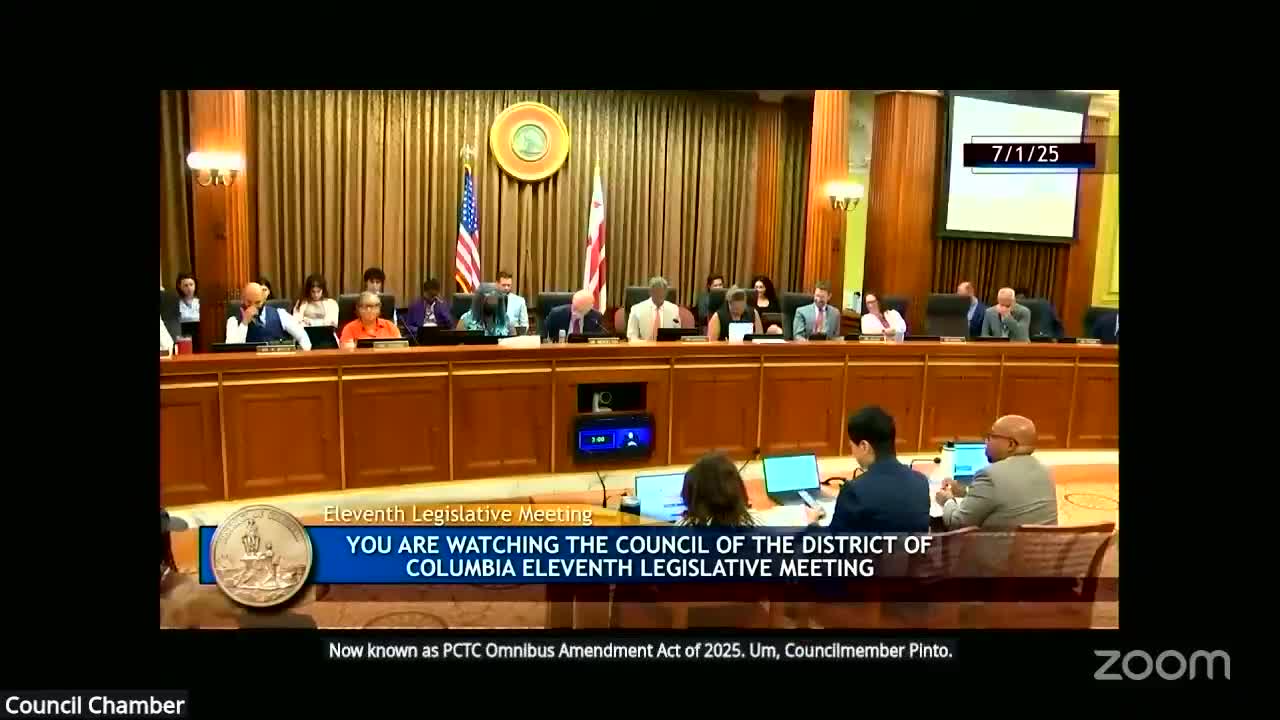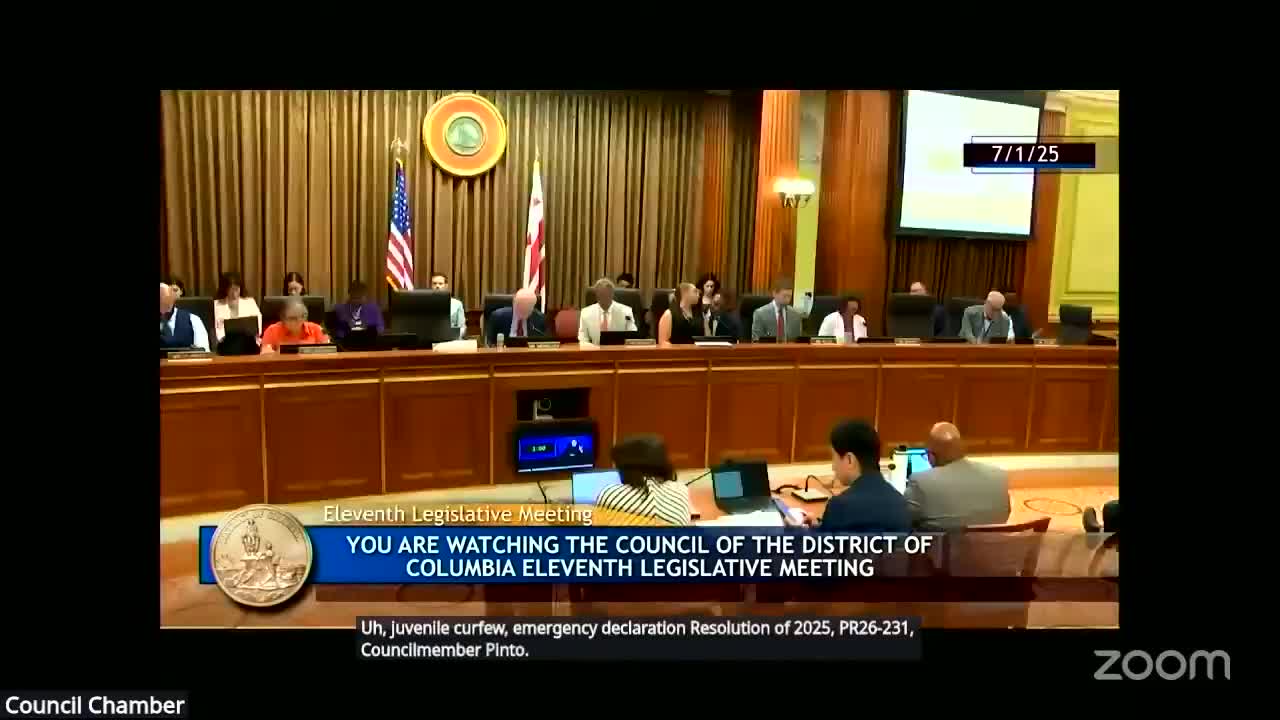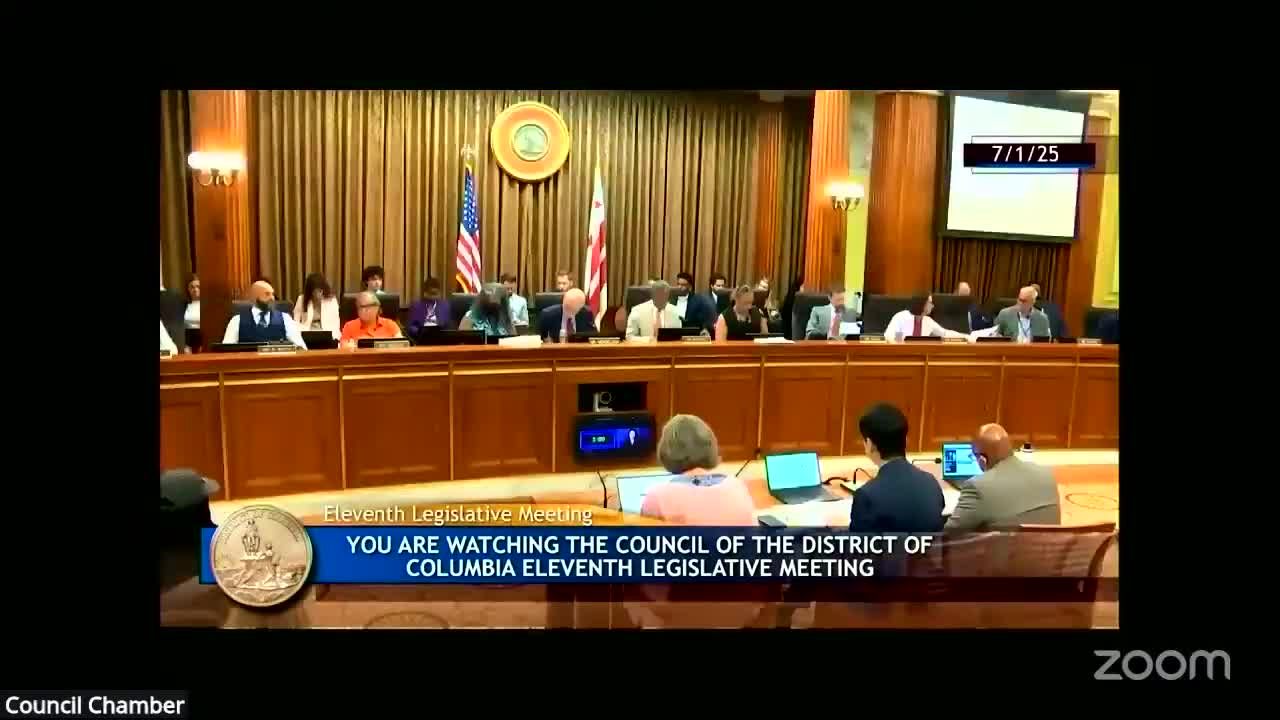Article not found
This article is no longer available. But don't worry—we've gathered other articles that discuss the same topic.

Council adopts PeaceDC omnibus amendments in Committee; debate centers on expanded pretrial detention presumption

Council approves Vacant to Vibrant amendment package aimed at speeding reuse of vacant property

Council approves emergency juvenile curfew with amendments; members add audible‑warning and body‑camera guardrails

Council advances revised student cellphone policy; state education agency monitoring removed from amended bill

Council backs multiple revenue‑bond declarations to finance housing rehabilitation and nonprofit headquarters

Council narrows Residential Tranquility bill after amendment to require dispersal warnings before arrests

